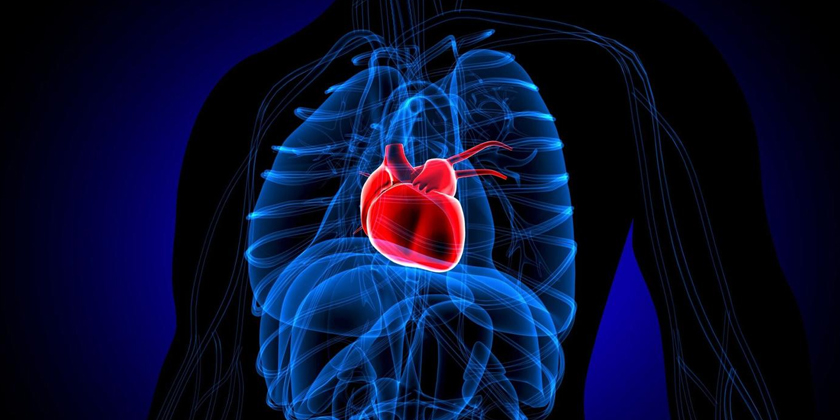Heart Health Myths Debunked: Expert Prevention Tips
Heart Health Myths Debunked: Expert Tips to Prevent Cardiovascular Diseases
The World Health Organization reports heart disease causes 17.9 million deaths each year and numerous myths surrounding it can misdirect prevention strategies. To develop effective cardiovascular health strategies healthcare professionals must debunk these misconceptions through evidence-based insights. In this guide experts debunk common heart disease myths by providing prevention tips based on reliable sources including the American Heart Association and Mayo Clinic as well as peer-reviewed studies.
—
Common Heart Health Myths Debunked
Myth: Heart disease only affects older people.
Truth: Heart disease can affect people of all ages because obesity and diabetes are becoming more prevalent in younger demographics. Research published in 2020 by the Journal of the American College of Cardiology indicated heart attacks among adults under 40 increased by 2% each year.
Myth: Maintaining fitness does not provide absolute protection against heart disease.
Truth: Fitness reduces risk but doesn’t eliminate it. Genetic factors along with stress and unhealthy eating habits remain significant contributors. Research published in Circulation in 2018 demonstrated that athletes who have high cholesterol levels are still at risk for heart disease.
Myth: Heart disease is a man’s problem.
Truth: Women face equal heart disease risk which increases after menopause due to decreased estrogen protection. According to WHO heart disease remains the leading cause of death for women worldwide.
Myth: Supplements like fish oil prevent heart disease.
Truth: Evidence is mixed. Research published in 2021 by the New England Journal of Medicine demonstrated that fish oil supplements generally do not prevent heart events in most individuals but omega-3-rich foods could offer benefits.
Myth: All fats are bad for your heart.
Truth: Unsaturated fats from olive oil and avocados benefit the heart while saturated and trans fats damage it. The Lancet published research in 2019 which revealed a 20% reduction in heart disease risk when consuming healthy fats.
Myth: High blood pressure and cholesterol do not show clear symptoms so most people wouldn’t know they have them.
Truth: These conditions operate undetected because they produce no visible symptoms. According to the AHA statistics half of adults with hypertension don’t know they have the condition.
Myth: Red wine cures heart disease.
Truth: Antioxidants in moderate amounts of red wine may promote heart health while excessive alcohol consumption negatively affects heart function. Research published in Circulation in 2020 demonstrated that heart benefits from alcohol consumption reach their maximum with one drink per day for females and two drinks daily for males.
Myth: Since heart disease runs in families it must be genetic which means lifestyle choices are irrelevant.
Truth: Genetic factors contribute to health risks while lifestyle choices have a major impact on those risks. Research published in 2017 by the New England Journal of Medicine revealed that healthy lifestyle practices can decrease genetic heart disease risk by up to 50%.
—
Expert Tips to Prevent Cardiovascular Diseases
Adopt a Mediterranean Diet:
- Consume vegetables and fruits along with whole grains and healthy fats regularly. According to a 2020 study in The Lancet this diet lowers heart disease risk by 30%.
- Action: Eat one portion of nuts or legumes each day.
Exercise Regularly:
- Incorporate 150 minutes of moderate aerobic exercise into your weekly routine. The Journal of the American College of Cardiology published a 2018 study that showed a heart attack risk reduction between 15 and 20 percent.
- Action: Walk at a moderate pace for 30 minutes five times per week or consider swimming as an alternative exercise.
Quit Smoking:
- According to AHA research smoking doubles heart disease risk but quitting reduces it by half within one year.
- Action: Nicotine patches together with QuitNow apps provide support during your smoking cessation journey.
Manage Stress:
- Chronic stress raises blood pressure. A Circulation study from 2017 revealed that reducing stress can result in 20% fewer heart-related incidents.
- Action: Use meditation apps like Calm for daily 5-minute sessions.
Monitor Key Metrics:
- According to AHA research regular monitoring of blood pressure alongside cholesterol and blood sugar levels prevents 80% of heart-related incidents.
- Action: Schedule annual screenings and use home monitors.
—
Why This Matters in 2025
By 2050 the United Nations predicts that urban living will encompass 68% of the world’s population while heart disease continues to cause numerous deaths making myth busting essential. The increasing public attention towards heart health seen on X underscores the 2025 approach to preventive measures for active individuals. These tips align with sustainable health goals.
—
Practical Steps
- Start Small: Swap one processed snack for fruit daily.
- Track Health: Track your nutrition and workout routines by utilizing MyFitnessPal.
- Consult Experts: Work with cardiologists for personalized plans.
—



